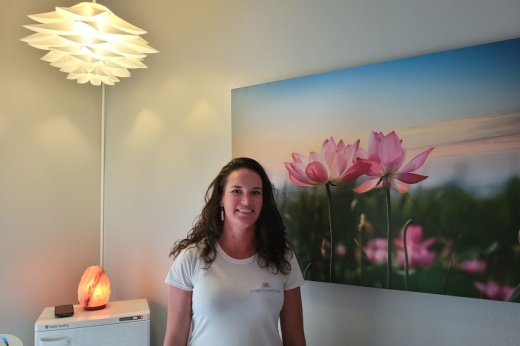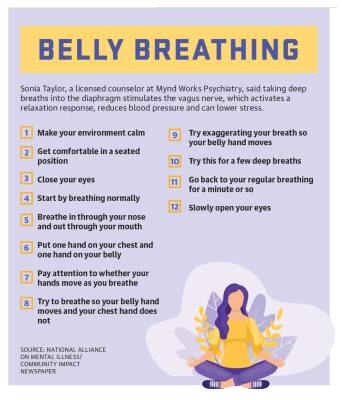According to numbers released by the World Health Organization in March, incidences of anxiety and depression increased in the first year of the pandemic by 25%.
Kathie Bolles, a psychiatric nurse practitioner and founder of Mynd Works Psychiatry in West Lake Hills, said she is not surprised by this increase and that the two disorders actually go hand in hand.
“If someone has significant anxiety, it can lead to depression,” she said. “Once someone gets anxiety under control, the depression will often resolve.”
Bolles said something she has noticed with some of her clients is a reluctance to re-enter society since the pandemic.
She said some signs people are anxious can show up in lack of eye contact or stuttering.
“A lot of people are having a hard time engaging,” she said. “I don’t know if that is why people are having a hard time finding people to work.”
Jamie Hill, a massage therapist with Living Lotus Massage, said she also saw an uptick in clients related to the pandemic.
She said massage’s ability to relax the body can help people find their inner balance.
She said physically what happens during a massage is the body releases endorphins, which “roots the relaxed state of mind.”
Hill said during a massage neurotransmitters such as dopamine and serotonin are also released, leading people to a more happy and joyful state.She said massages also helped her clients adapt to working at home in different physical positions, such as from a couch or bed rather than a desk.“It’s rewarding helping people help ease that tension and help them focus on work,” she said.
Gayl Hubatch, a doctor of Oriental medicine at Blue Heron Center in Lakeway, said she uses a few techniques that help relieve anxiety, such as acupuncture, meditation, qi gong and tai chi.
Hubatch said some of the techniques she uses focus on attention and breath to lower one’s heart rate. She said the technique she uses is not just to manage stress and anxiety, but to transform that energy into a more positive feeling.
“Creating a positive emotion sets off neural chemicals,” she said. “A release of dopamine or serotonin elevates our energy levels and gets us motivated.
“Most people when I mention the word ‘meditation,’ they say immediately, ‘Oh, I can’t meditate. My mind is out of control.’ However, we meditate all day long whenever we take a conscious breath on the inhale. And the exhale, just focusing on that, and when we bring attention to the breath it literally creates an anchor in the autonomic nervous system, so that the stress response starts to lower and the relaxation response starts to increase, and that’s what balances the sympathetic and parasympathetic aspects of the nervous system.”
Sonia Taylor, a licensed professional counselor at Mynd Works, said the therapy she offers works to change thoughts and behaviors so her clients can lead a more fulfilling life.She said working to teach mindfulness and deep breathing are some of the strategies she teaches as part of the cognitive behavioral therapy approach.
“It sounds so easy, but it’s some of the hardest stuff to do,” she said.
She said learning to take slow breaths can help improve some of the physical symptoms those with anxiety often experience.
“There is support out there, and if people think anxiety is holding them back, there is no stigma or judgment,” she said. “A lot of people need an ally, so you don’t have to suffer alone. There are many resources in the community.”
“Especially the quiet or lonely ones,” Taylor said. “Look out for them and try to connect with them and see how they are doing. Once that rapport is built, you can tell if there is underlying anxiety.” Source: National Alliance on Mental Illness/Community Impact Newspaper






